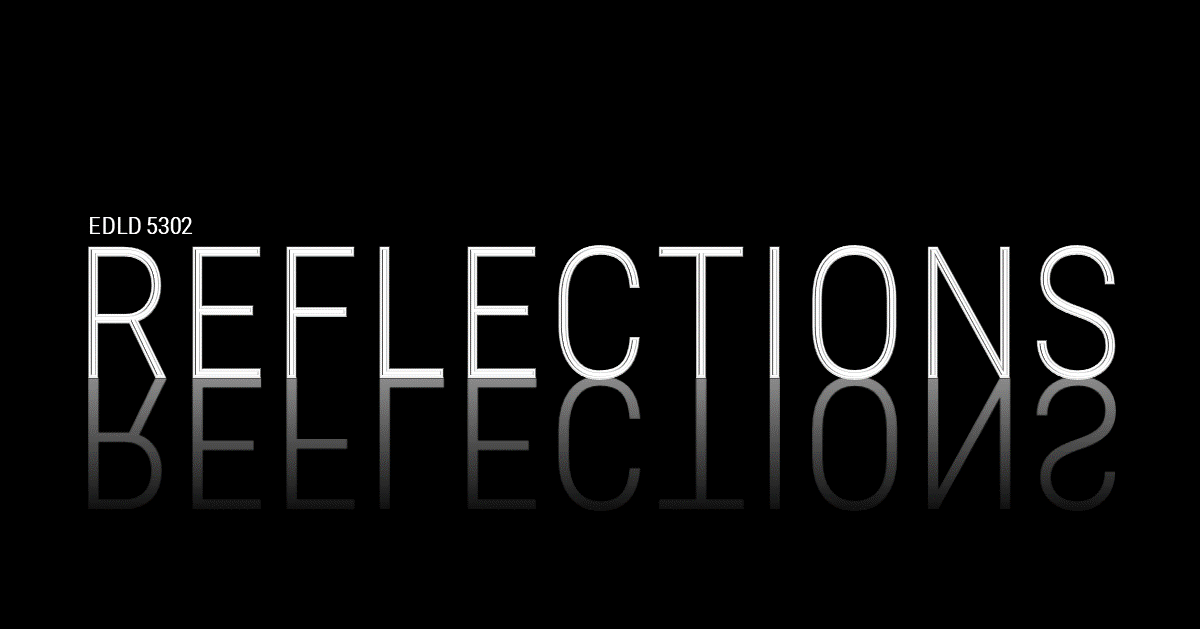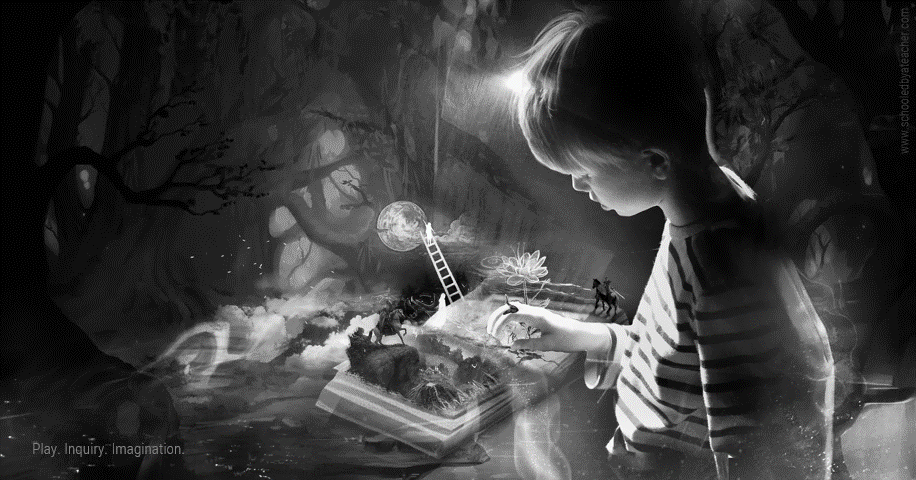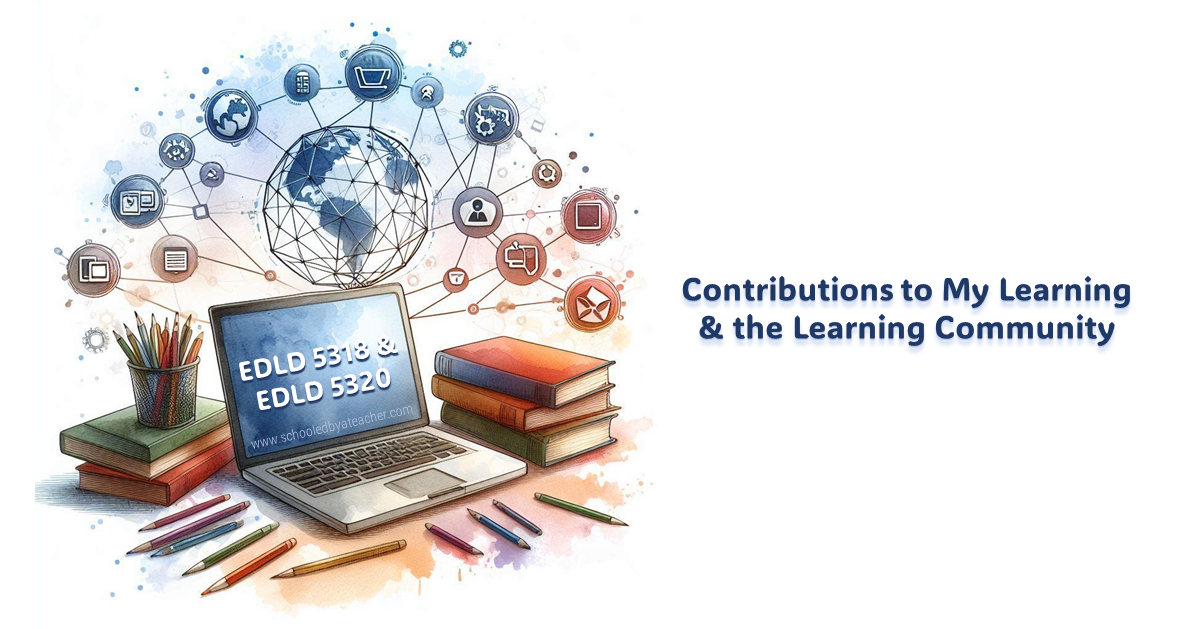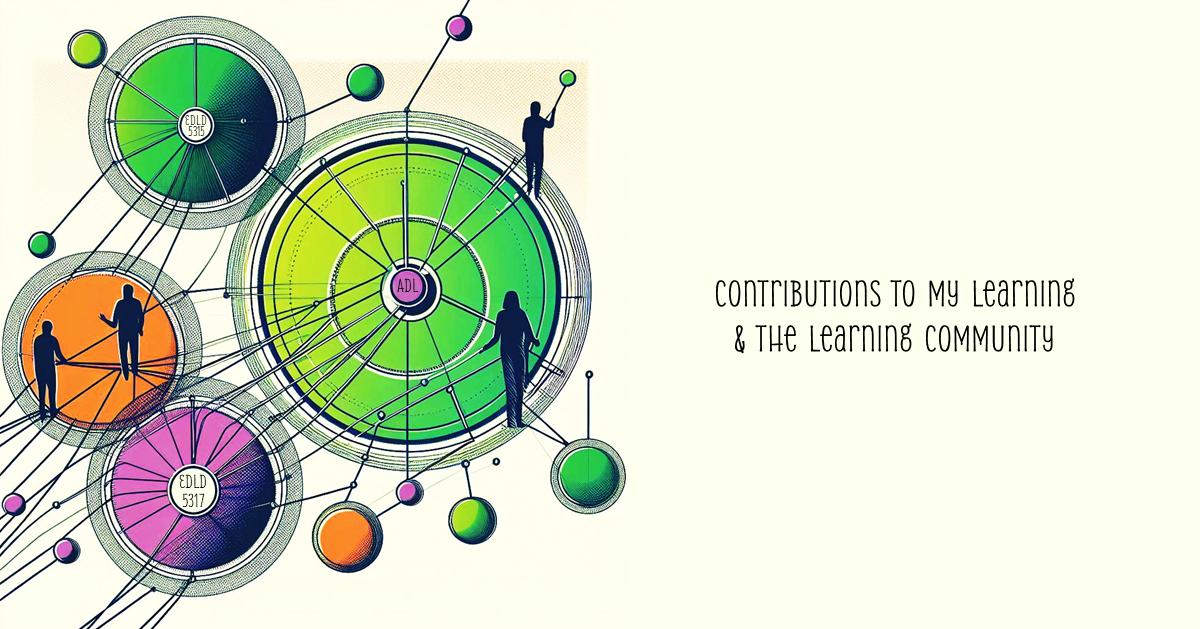As I wrap up the EDLD 5302 – Concepts of Educational Technology course in the Applied Digital Learning program, I would like to share some of the key insights and learnings that I have gained from this experience. In this post, I will reflect on how this course has helped me continue to develop a growth mindset, a learner’s mindset, and my learning network as an educator and a lifelong learner.
Growth Mindset
One of the most important concepts that was covered in this course is the power of a growth mindset. A growth mindset is the belief that one’s abilities and intelligence can be improved through effort, feedback, and learning (Dweck, 2006). A growth mindset helps us overcome challenges and seek opportunities for growth.
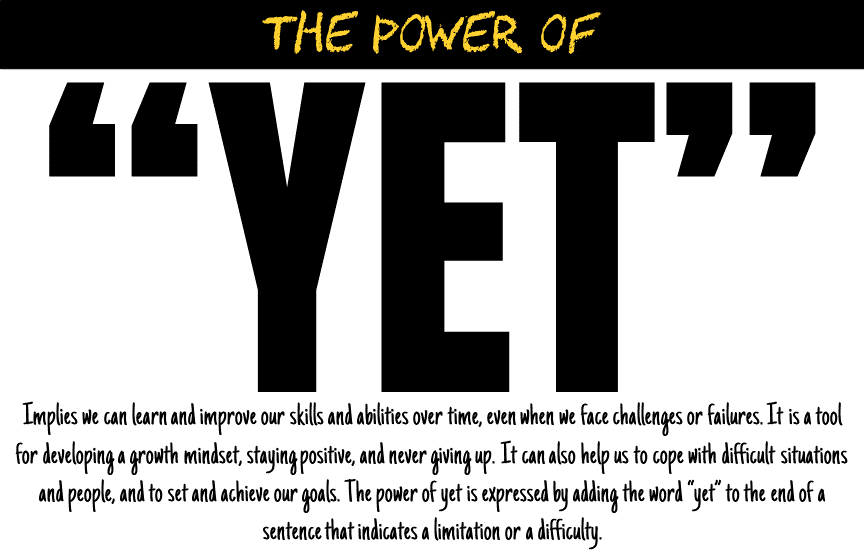
It also helps us embrace the “power of yet” and failing forward, which means using failure as a chance to learn and grow, rather than as a setback or a reason to give up. Failing forward is a positive and proactive attitude that helps one overcome obstacles and achieve success. It has enabled me to persist, in spite of challenges, in the implementation of my Technology-Enhanced Project-Based Learning innovation plan.
To solidify my learning, I had the opportunity to create a growth mindset plan for myself and my colleagues. This plan included specific strategies and actions that I could implement to cultivate a growth mindset in myself and others, steps to take when a fixed mindset arises, and resources that I plan to use/recommend to further develop a growth mindset in myself and in others.
Learner’s Mindset
Another concept that I learned in the Concepts of Educational Technology course is the importance of having a learner’s mindset. A learner’s mindset “allows individuals to act on their capacity to learn and respond to their inquisitive nature” (Harapnuik, 2021). It involves being curious, open-minded, self-directed, reflective, and collaborative. I had the chance to explore different aspects of a learner’s mindset, such as:
- The COVA Framework: This approach stands for Choice, Ownership, Voice, and Authenticity (Harapnuik et al., 2018). It is a framework that empowers learners to take charge of their own learning by giving them choice over what, how, when, and where they learn; ownership over their learning process and products; voice over how they express their learning; and authenticity over how they connect their learning to real-world contexts. The COVA model appealed to me because it addresses several issues associated with traditional, didactic, “sit and get” models of education. It recognizes that learners have unique needs and interests, and by providing them with choices, it encourages a sense of autonomy and engagement and empowers learners to take control of their education and become active participants in the learning process. Additionally, by encouraging learners to take ownership of their learning, the COVA framework promotes a deeper understanding of the subject matter and enhances critical thinking skills.
- Writing a Learning Manifesto: This is a personal statement that articulates my beliefs, values, goals, and expectations about learning. It is a tool that helped me define my beliefs about learning and align it to my purpose. It also served as a reminder for me to stay true to my vision and mission as educator.

By using/developing these tools, I have a deeper understanding of myself as a learner. I have discovered my strengths, interests, passions, and areas for improvement. I have also learned how to take more responsibility for my own learning and how to communicate my learning effectively with others.
Learning Networks
The third concept that I explored in this course is the value of networking. Networking is the art of building and maintaining relationships with people who can support, inspire, and challenge you. Networking goes beyond making contacts or exchanging information. It involves building meaningful relationships based on mutual trust, respect, and value.

In this course (and in the other courses I’ve taken in the Applied Digital Learning master’s program), I had the opportunity to build my personal learning network by continuing to connect with my inspiring classmates in the ADL program who have shared their insights, feedback, resources, and opportunities with me. I have also contributed to the learning of my peers/others by sharing my own insights, feedback, resources, and opportunities with them. Moreover, I wrote a blog post which touches on the benefits of networking as an educator and included some of the educational networks that I am a part of.
Closing Thoughts on EDLD 5302
In conclusion, the EDLD 5302 – Concepts of Educational Technology course has helped me develop a growth mindset, a learner’s mindset, and a networked mindset as an educator and a lifelong learner. I am grateful for the knowledge, skills, and outlooks that I have gained from this course. I am also excited to apply what I have learned to my current and future practice as an educator and a lifelong learner.
